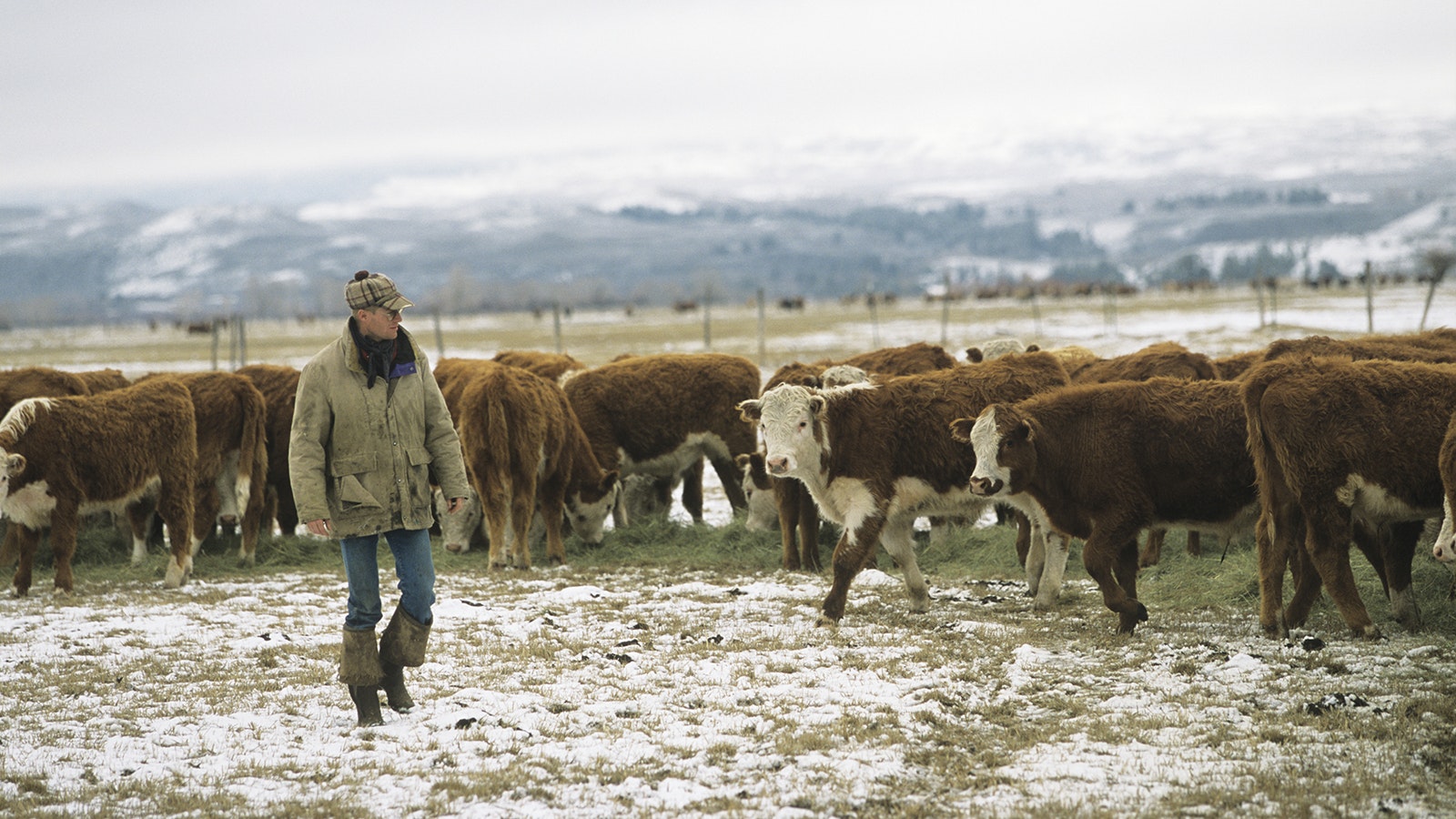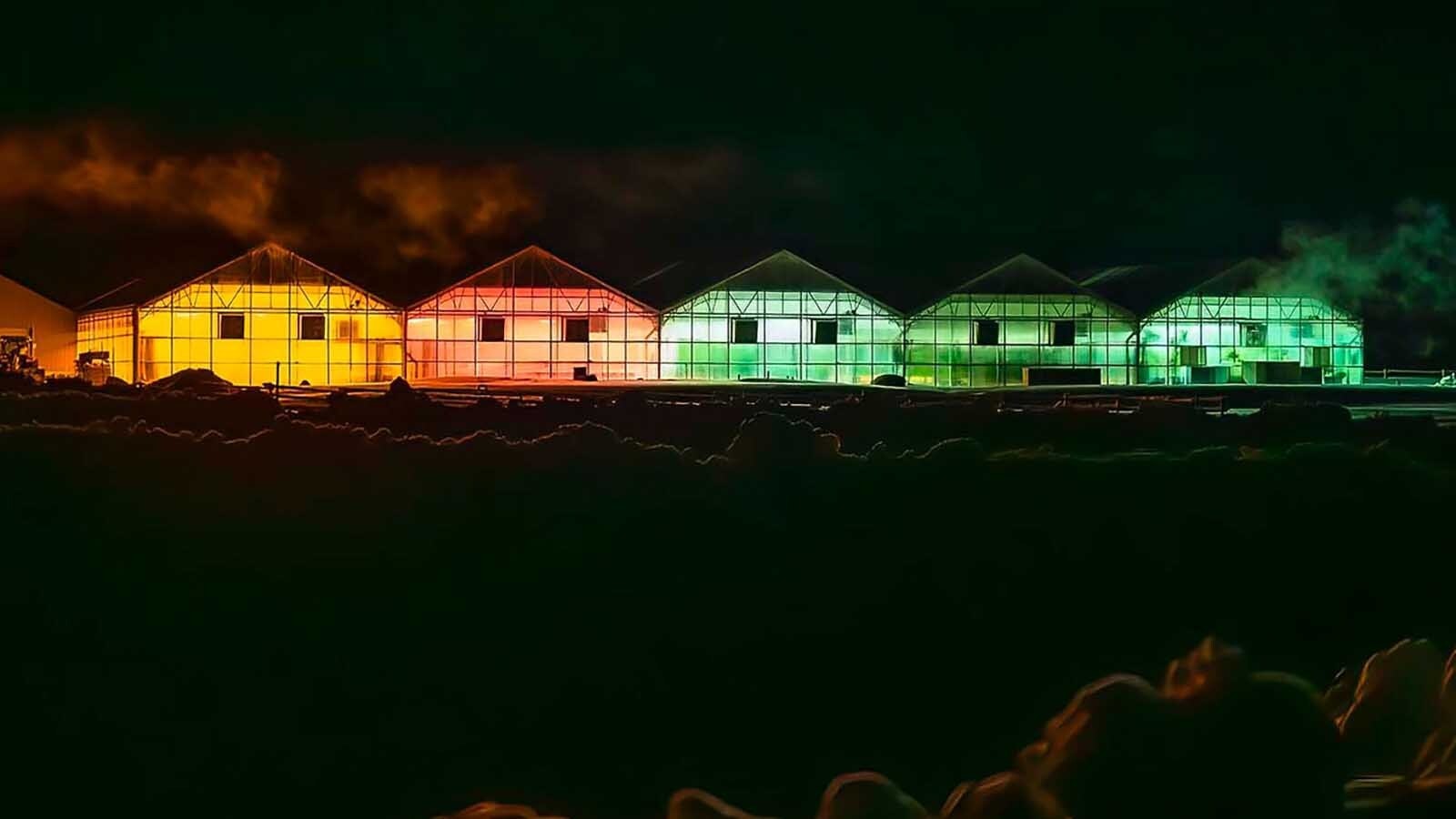Despite a number of mom-and-pop motels and dude ranches in the area, as well as 90-some Airbnbs, Dubois often runs out of rooms for tourists.
That’s started to impact the growth of the National Museum of Military Vehicles. So, the museum’s owner, Dan Starks, is taking matters into his own hands. He’s building a new 70-bed motel for the museum.
“I was originally hoping that someone else would build a motel or expand the number of rooms we have here (in Dubois),” Starks told Cowboy State Daily. “But nobody has. In fact, since we built the museum, a lot of the lodging has been bought and sold, changed hands, and stuff like that. So, the lack of rooms is holding us back, and holding us back from accomplishing our mission in a bigger way.”
Right now, attendance at the military museum is around 40,000 people annually, but Starks has had to turn many opportunities away, due to lack of motel rooms.
“In the height of the tourist season, there are a lot of times the hotel rooms are completely sold out,” Starks said. “Our tickets (to the museum) are good for two days, and it really takes two days to take in everything that we’re offering at the museum.
“But a lot of times, people can’t do that because there are no hotel rooms.”
Large tour bus groups and other veterans and educational organizations, too, have approached Starks about doing multi-day programs at the military museum.
“A lot of times they want to do a combination of a series of meetings and include museum visits,” Starks said. “And a number of times the group has decided, well we can’t do it because there aren’t enough motel rooms.”
While there are rooms in Lander and Riverton, driving 80 miles down the road doesn’t tend to mix well with the tourist crowd, Starks said.
“Imagine if they’ve got alcohol included in there, they’re not going to want to drive 80 miles down the road,” he said. “And, depending on the time of the year, when days get a little shorter, people also don’t want to risk hitting animals. So, they prioritize the safety of their group.”
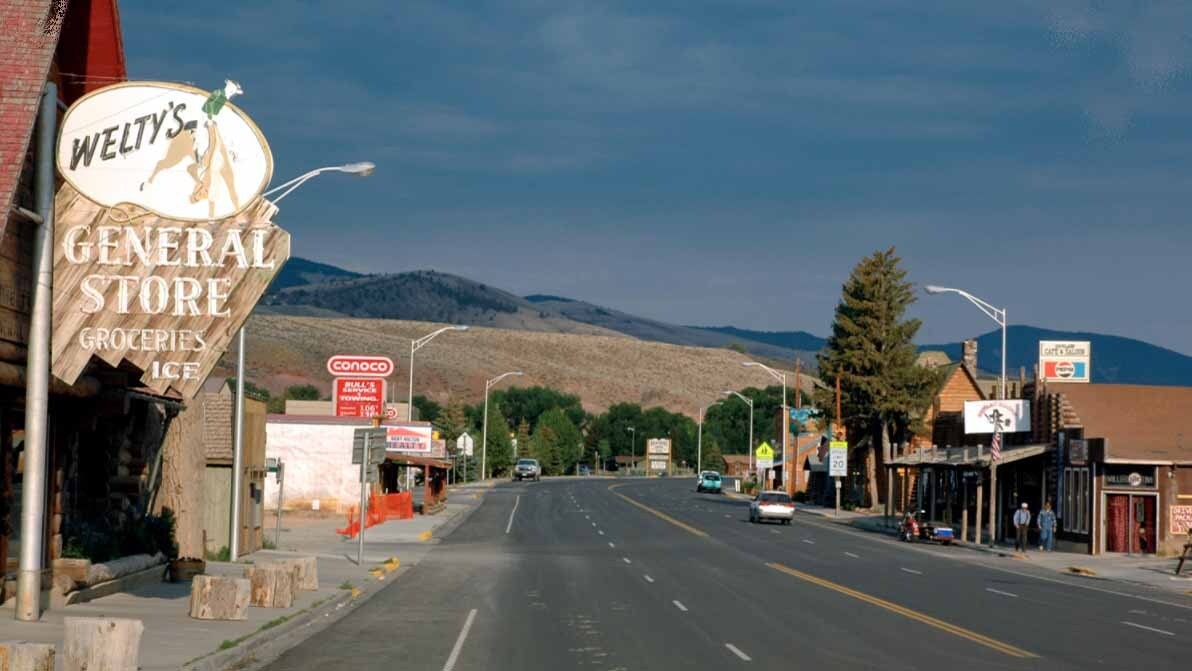
Bare Bones, But Nice
The Marine Vietnam War Tankers Association is just one of the military groups that has considered adding the National Museum of Military Vehicles to one of their itineraries but backed out after learning there probably wouldn’t be enough motel rooms to accommodate all of their group.
“For them to come to us, we need rooms for them, to put everybody on their bus into rooms,” Starks said. “That’s maybe a 40-room block, and there aren’t any 40-room blocks available here.”
That’s just one of the many groups Starks has talked to since building the $100 million military museum in Dubois, which opened to the public in the fall of 2020.
“So that’s why we’re doing the motel, to expand the number of visitors we can have here at the museum,” Starks said.
Called the Liberty Lodge, the motel isn’t going to be a high-end, resort-style hotel, Starks said. But it will be a nice space that’s affordable for the types of visitors who most often visit the museum.
“The end goal here is to have the pricing of the Liberty Lodge be suitable for educators, none of whom have enough money, and for veterans, none of whom have enough money,” Starks said. “And for, again, on a lot of these tour groups, it’s senior citizens on a fixed budget.”
That means there won’t be a huge lobby or amenities like a swimming pool, though everything will otherwise be state-of-the-art, with good water pressure, as well as modern heating and cooling.
“It’s not a hotel, because I’m not going to pay for a common area just to have a big lobby,” Starks said. “And we’ve already got our restaurant, our canteen, and catering ability and all that stuff. So, I just want to spend the money needed, no more than necessary to have 70 solid, safe, completely functional rooms at an affordable price for our target audience.”
Dubois Growing Its Tourism
Dubois has been on the map for tourists for quite some time, and that’s given it dozens of mom-and-pop motels and lodges that do a thriving business, particularly during the summer months.
Tourism Asset Development distributions from Wind River Visitors Council, which are calculated as 25% of overall lodging taxes for a given community and its surrounding area, show a 14% increase year over year from 2023 to 2024.
That suggests healthy growth in overnight stays for Dubois and its surrounding area.
The lodging crunch for tourists is something that Dubois Chamber of Commerce Director Suzanne Osegueda told Cowboy State Daily has definitely been tightening, although the chamber doesn’t keep statistics on lodging presently.
“Some of our lodging facilities are not chamber members,” Osegueda said. “And so, our numbers would be very skewed.”
Many of Dubois’ motels are also seasonal lodging and not open year-round, further complicating the picture.
The town also has close to 90 Airbnb or VRBOs, which adds to its capacity during large events like the town’s recent Fourth of July parade, which featured a couple dozen military tanks from the National Museum of Military Vehicles.
The popularity of the town’s expanded Fourth of July parade is a case in point. Hotels were sold out the week before the event. That wasn’t the case the year before.
Having more hotel rooms is needed for Dubois to further grow its tourism, Osegueda said. The community as a whole is facing similar restraints as the military museum when it comes to hosting large tour groups.
“We’d really like to cater to some of the larger tour groups that are coming,” she said. “We have fabulous mom-and-pop-owned places, but many of those groups like to stay together in one location, and, with the exception of the Stagecoach (Inn & Suites), we don’t have anything motel-wise that could accommodate large groups.”
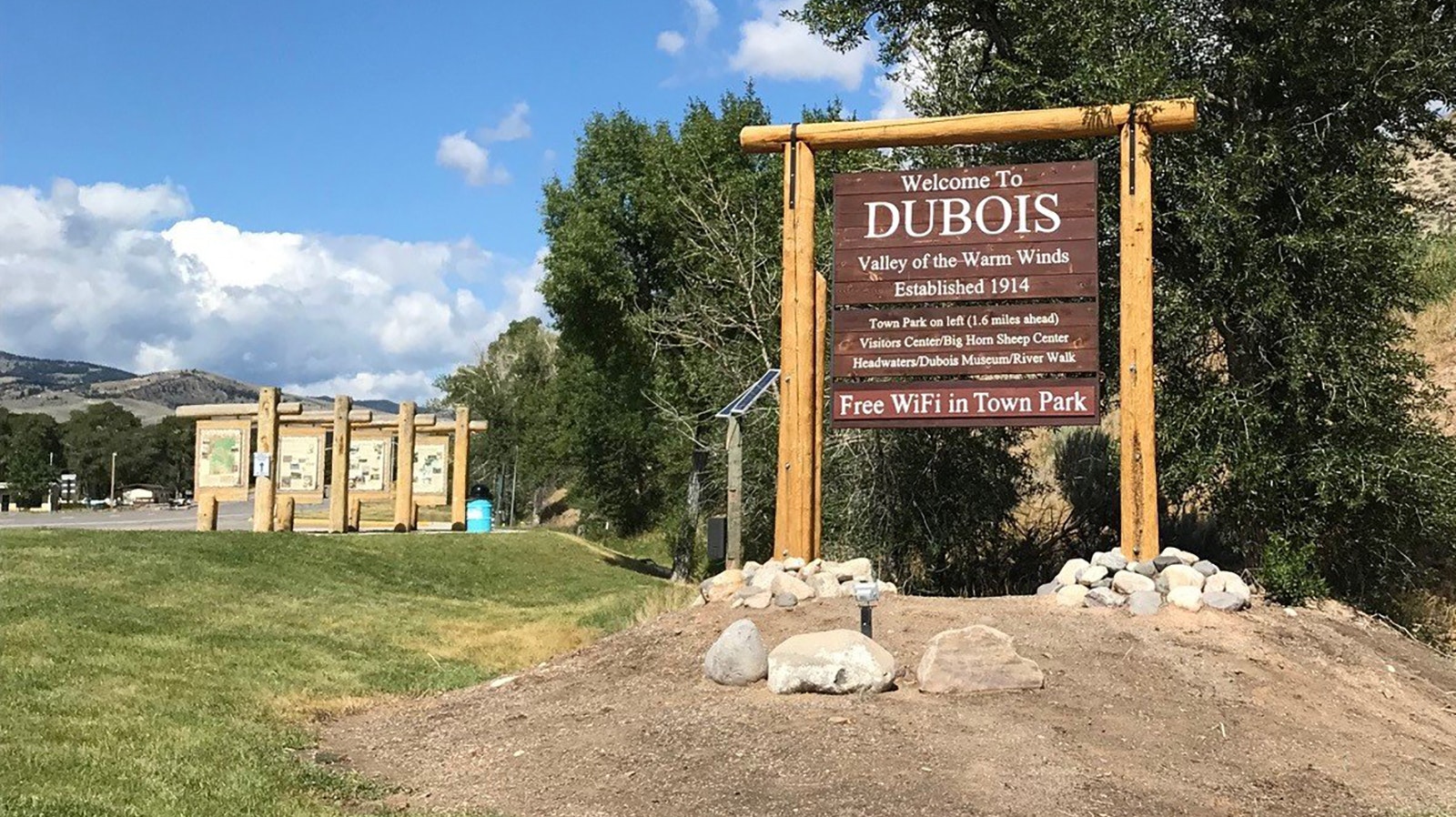
How The Museum Started
If you give a mouse a cookie, he’s going to want a glass of milk.
The axiom is part of a popular children’s book that’s all about charting the consequences of things, even when they seem small. It’s a principle that has definitely applied to the National Museum of Military Vehicles in Dubois.
Owner Dan Starks started off with just one tank to restore so he could ride it in the Dubois Fourth of July parade. But now the Dubois resident has 500 military vehicles, as well as a 160,000-square-foot museum to house them in.
Along the way he’s had to build a 24-unit apartment to help house his workers amid a housing shortage in Dubois and now a 70-unit motel.
The first tank he bought was just an old, rusted-out husk of metal sitting out in a Virginia field rain or shine. The vehicle had once been used for target practice.
“When the military decommissioned its firing range in the late 50s, it left its targets out in the field,” Starks told a recent tour group one Saturday. “They weren’t worth anything, so they just left them out there to rust.”
Starks picked up the tank in November 2011 for $50,000 and felt like he’d found a bargain, even though it had a tree growing out of it.
“I was jazzed,” Starks said. “I didn’t even know a civilian could own a tank. So even though it was a 30-ton paperweight, it’s like ‘Hey, I want my own tank.’”
Starks’ goal was to find someone who could restore it to operating condition, so he could drive it in the Dubois Fourth of July parade.
“It was my fantasy,” Starks said. “I wanted to celebrate American independence driving a World War II Sherman tank down our Main Street, Rams Horn.”
Three years later, though, Starks had made little progress on restoring the tank. It turned out to be mighty difficult to source parts for such an old tank. That led him to buy a second tank in February 2014.
It was a sweetheart of a deal — only $500,000 for a tank that was ready to drive off the lot. But it was one that he could drive in the Fourth of July parade, without trying to find impossible to find parts.
It wouldn’t be the last tank Starks bought. In fact, there’s a little joke Starks likes to tell about the first two tanks he bought, related to something he later learned about them. The Army Ordnance Department considered one of the first two tanks that Starks bought a female variant of the Sherman tank, while the other was a male.
“So, in my naiveté, I parked these next to each other on my ranch, and they multiplied,” Starks said. He always chuckles a bit as he says that. But he doesn’t laugh at the next part.
“My collection today is 500 vehicles, and it’s the largest private collection in the world,” Starks said. “It all started with these two.”
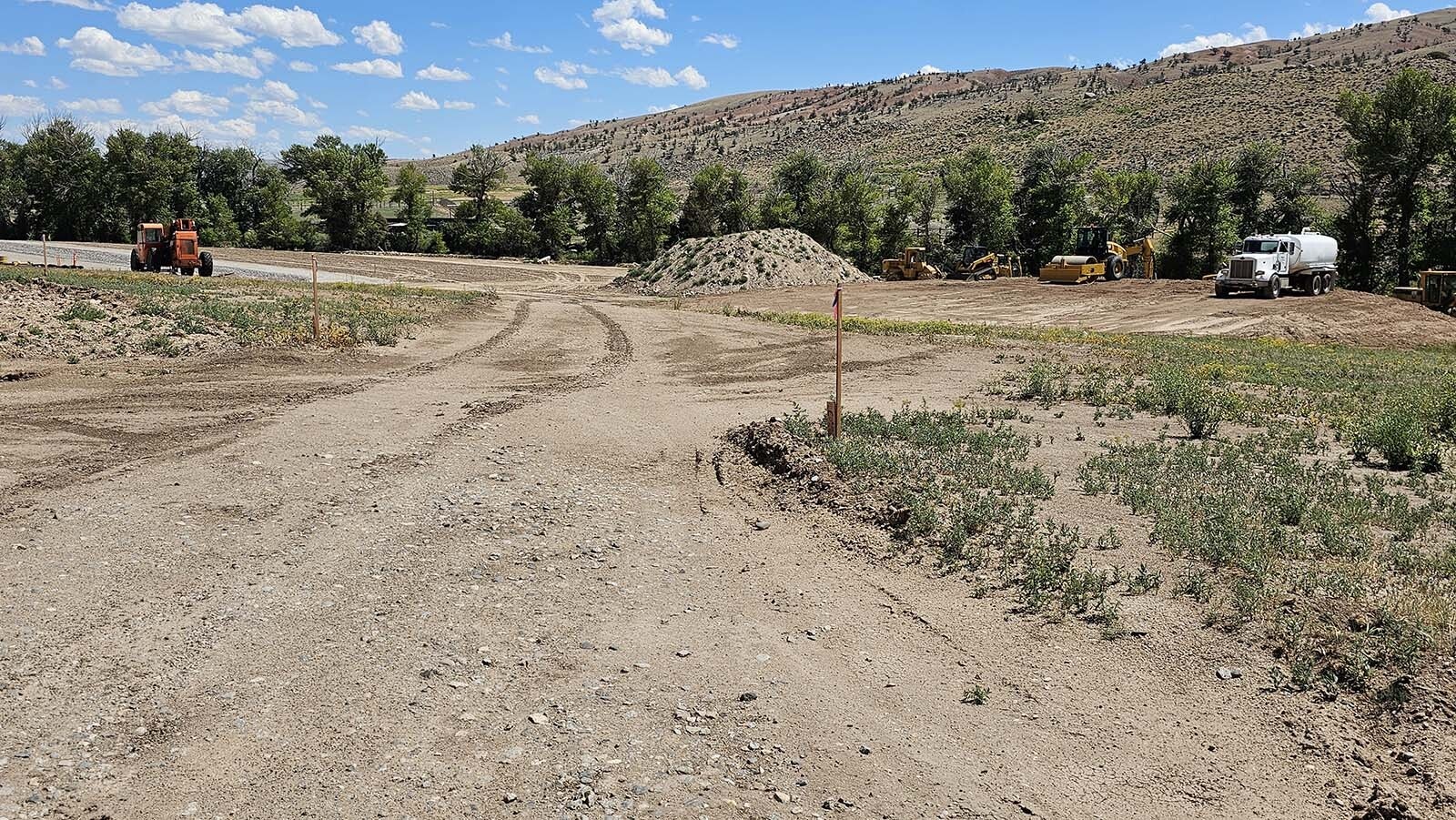
Bigger Dreams Ahead
Starks has big dreams for the National Museum of Military Vehicles, dreams that involve more artifacts, and, ultimately, an additional building to tell other parts to keep telling the story of America’s freedom. It’s such an important message, Starks believes, because so much of the history that kept America intact during World War II isn’t being told.
It’s mission-critical, he believes, for people to understand that U.S. manufacturing capability was the key to winning World War II. Withoutthat overwhelming manufacturing capacity, Japan and Germany could have won the war, and the world would be a much different place.
That makes the motel just as mission-critical to realizing Starks’ vision of a museum that tells the story of America, so that the masses understand what their choices and challenges in the world really are. And so that they don’t take for granted how close things were in a war that could well have gone much differently.
“People visiting the existing Museum already can’t take it all in on one day,” Starks said. “So, if there aren’t enough motel rooms, why would we double the size of our exhibits and galleries, when people really can’t take it all in and they can’t find rooms to stay overnight?”
Starks hopes that builds attendance at the museum to a level that keeps expanding the museum sustainable. He’s already put in place an endowment to support the museum long after he’s gone, but making sure everything is set up for sustainability is his focus right now.
“So, it is kind of one thing after another, but with a synergy between all of these steps of development,” Starks said.
The motel rooms could also help provide additional housing for seasonal workers in Dubois, Starks said, whether that’s at the museum or some other business in town. They would be suitable for short-term seasonal workers who might only be in the community for a few months at a time. That would be in addition to housing units he’s already built for that purpose in town, including one apartment unit and some modular housing units.
“The way I’m thinking about it is, we need more housing capacity,” Starks said. “And I’m happy to have it be housing for anybody. It will expand the housing available. And it might be a little bit of motel housing. It certainly is quite a little bit of apartment housing and might be other modular home housing. But all of it is good for the community and all of it lets us continue to achieve our educational and honoring veteran goals.”
In the meantime, Starks hasn’t stopped revamping existing exhibits and adding new artifacts to the existing museum along the way.
“That’s a critical part,” Starks said. “It’s a smaller part, but it’s still a really important part of our ongoing development of the museum, to keep things fresh, keep having new things, to bring people back and to stay engaged.”
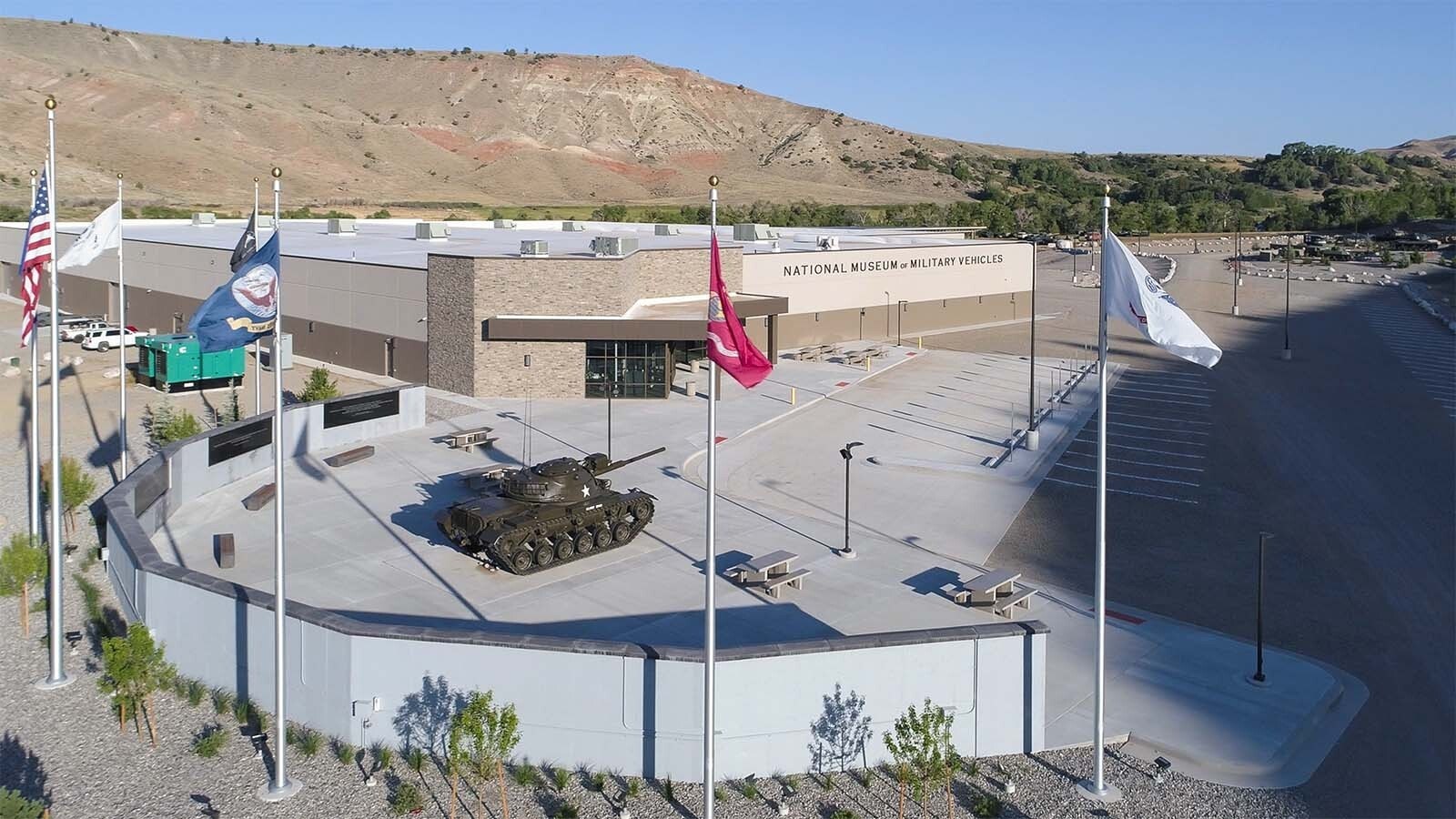
Large Groups By 2027
Earthmoving is already underway next to the National Museum of Military Vehicles, and Starks expects construction work to begin within the next week or two on the motel. The timeline calls for the lodge to be operational before the end of 2026, and large groups should be able to start booking the motel starting in 2027.
“That will be a whole new dimension to what the museum offers,” Starks said. “And then we can host college visits. We can host overnight school visits. We can host active-duty military group visits, staff rides, and see where it takes us,” Starks said.
If the evaluation reveals that a hotel with more amenities is needed, that’s something Starks said he still has room for, and would be willing to consider. But he wants to see how it goes with the motel first.
“I don’t know anything about running a motel and none of us do here,” Starks said. “But we didn’t know anything about running a museum either, and, so, we’ll tackle it. We’ll get a little bit smarter. We’ll figure out what we anticipated correctly, what were oversights, and then if everything builds, continues to build the way that I think it’s very likely to, then we can add more motel rooms. We’re not capped at 70.”
Being able to accommodate overnight guests also helps Starks with his future aspirations for the military museum, which includes building another large building to tell stories about the Cold War, the Gulf Wars, and the global war on terror.
“We’ll still have room left over after that,” Starks said. “So, we would build that space larger than we could use, so that we have expansion available to education on the history of American freedom.”
The latter, Starks added is more aspiration than plan at this point.
“It’s one step at a time, but a lot of aspiration,” he said. “So far, I’ve found a way to fulfill my aspirations, but I never take that for granted. I could hit a wall here at some point, but those are my aspirations.”
Renée Jean can be reached at renee@cowboystatedaily.com.


